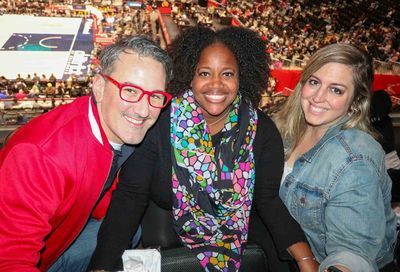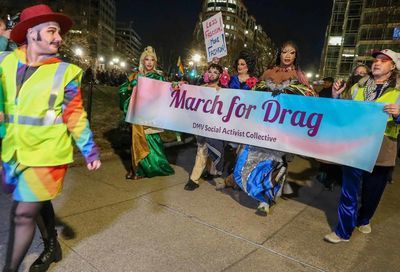Call Me By Your Name: Luca Guadagnino and James Ivory on making the ultimate gay romance
The director and screenwriter talk about bringing Call Me By Your Name to the screen.

In director Luca Guadagnino’s lushly beautiful Call Me By Your Name, the budding romance between teenager Elio and 24-year old graduate student Oliver blossoms with delectable slowness. Set in Italy during the summer of 1983, the film, adapted from André Aciman’s 2007 novel, depicts the young men growing closer as Oliver spends the season assisting Elio’s father Samuel, a history professor. Sparked primarily by Elio’s intellectual and sexual curiosity, he and Oliver enjoy a sun-dappled summer of swimming holes and apricot groves, of flirting over Bach and Liszt, and bonding over their shared Jewish faith.
Guadagnino, who directed and co-wrote the award-winning drama I Am Love, draws the audience into the warmth of the setting, and the tension of mounting attraction, by allowing shots and scenes to unfold in gorgeously composed long takes. A master at conveying — then shifting — perspective, he uses the camera to encourage identification with Elio, portrayed by newcomer Timothée Chalamet, while also accentuating the character’s beauty and classical features, referenced in the bronze statues that Oliver and Samuel dredge up from the sea.
The light of inspiration radiates throughout the film, and Guadagnino’s passion for the source material is reflected as much in the director’s own words as it is on screen. “I love the book,” he says, “I love the characters, and I love the cast that I put together.” The cast includes Armie Hammer as Oliver and Michael Stuhlbarg as Elio’s perceptive, gentle father.
Love is the key word. Filmed among towering pines and winding lanes in a landscape whose beauty charms even on a rainy day, Call Me By Your Name is an utterly alluring love story. It’s a movie that earns its spot on the distinguished list of great summer romances, a list that might also include another slow-burning book-to-screen romance, also set in Italy: A Room with a View, directed by James Ivory.
One-half of the legendary Merchant-Ivory Productions partnership, Ivory wrote the screenplay for Call Me By Your Name, and recognizes some similarities between the film and another classic Merchant-Ivory film, the gay-themed drama Maurice.

“Both films have something very much in common,” says Ivory. “Both of them are romantic stories, which is why so many women like both films. I mean, Maurice is a film that women liked very, very much because it’s romantic and has a happy ending…. Call Me By Your Name [might have] equally a large, appreciative women’s audience.”
In fact, the film has found appreciative audiences at major film festivals from Sundance to Berlin to Toronto, and has already garnered a number of critics’ prizes and three Golden Globe nominations. Following the surprise Best Picture Oscar for last year’s rapturously received Moonlight, the film now is generating steady Oscar buzz, especially for Chalamet and Hammer’s superb performances.
But the movie’s success at the box office won’t depend only on awards and critics, or the romance-loving female audience. Men, gay or straight, also can appreciate a moving love story. And this story in particular might strike a chord with many queer people, of whatever gender, as it depicts a relationship between a 17-year old and a slightly older man that will be familiar to some as a gay rite of passage ingrained in Western culture since the ancient Greeks.
Elio isn’t the first, and won’t be the last, young man to experience his sexual awakening at the hands of an older man, and to look on the experience with fondness. Given societal conventions of the past few centuries, adolescents who might be inclined towards same-sex attraction generally have had few opportunities to explore such feelings with a peer, without fear of reprimand, rejection or even condemnation.

Enter the older man, someone like Oliver, sensitive and self-assured, a model of the confidence that results from knowing oneself. In Call Me By Your Name, Oliver leads Elio in a subtle game of seduction, yet it’s the younger man who must decide to act on their mutual desire.
In one already famous scene, Elio watches Oliver on a dance floor, lost in the reverie of the Psychedelic Furs’ hit “Love My Way.” After a moment, the teen joins the object of his desire on the dance floor and loses himself in much the same trance. Quite clearly, he’s discovered something, too.
“I wanted to have a sort of hymn for the two of them,” says Guadagnino. “And also something that could resonate on Oliver, and show without telling the powerful necessity that Oliver has to lose himself in his emotions. And ‘Love my Way’ is a testament of that.”
Evocative of ’80s romance and heartbreak, the song fits the pair perfectly, while also expressing a more personal feeling of the director’s. “I remember this song from when I was a kid, as well,” Guadagnino continues. “And so for me it was an homage to my memory of music, and to the Psychedelic Furs themselves, and it was very timely for the characters.”
He admits his own experiences as “a very restrained kid” don’t entirely match up with Elio’s. “I was like Elio, watching people dancing, but unlike Elio, I never jumped onto the dance floor.”
Elio, on the other hand, recognizes a kindred spirit, and responds to the attention and tutelage of his family’s houseguest as a means towards self-discovery. His awakening is the heartbeat of Guadagnino’s film, which the director describes as, “a movie about the capacity of accepting the other in his or her otherness. This is a movie in which you see the transformative quality of the people that interact with one another for the best.”

Indeed, the pair’s summer romance is presented in the most ideal terms. Notably, Elio and Oliver’s love blooms right under the noses of Elio’s father and mother, who appear not only aware but entirely supportive of their son’s journey. As understanding a dad as any queer kid is likely to find, Samuel delivers in the film’s final act one of the most beautifully written father-son conversations ever committed to screen.
Co-star Michael Stuhlbarg, wonderful in the role of Samuel, sees the scholarly, understanding father as a sort of ideal parent. “He seems to be liberal and present, conscientious and loving,” he says. “He seems to have a great sense of humor and a great passion for what he does in his life. And I think he gets a huge delight out of where his son is in his life right now.
“I think with Elio being on the verge of manhood, [Sam] seems to be getting a kick out of some of the things that he’s going through, yet at the same time he remains both generous and present if Elio needs him. He just seems to be a good parent, from at least my perspective.”
The film has stirred up controversy among those who take issue with the lovers’ age difference, and it’s clear that not every viewer will share Stuhlbarg’s view. And, as the brief romance will almost certainly have long-lasting effects on Elio and his family, some might insist that the teen’s parents should be more involved, or more protective.
Stuhlbarg favors another view. “At least in this case, I don’t think Professor Perlman wants to protect Elio. I think he has a sense that Elio has gone through something profound, and I think he’s been encouraging him not to push those feelings — those deep feelings — away.”

And if such feelings should lead to heartbreak? “I think it’s really impossible to protect your children against things,” he says. “You can do the best you can, but in the end, especially as they get older, they’re going to do what they will, and I think it’s enough to be present in their lives. I think [Sam] saw something growing and he remained present, but not intrusive in terms of their getting to know each other. I think he felt probably that it was none of his business, but he also wanted to be present for his son if his son needed to ask him anything, or needed him.”
Although both Guadagnino and Ivory downplay any potential controversy, or political statement one might infer, it happens that the film’s release coincides with a cultural moment that’s fraught with partisan tensions. In the midst of these stark divisions between so-called liberal and conservative values, issues of sexuality and sexual expression have been further inflamed by harassment and assault scandals of every stripe.
Even when a creator has no intention of being political, it seems inevitable that someone will manage to politicize their work. Yet Ivory, for one, fully resists such thinking in reference to Call Me By Your Name.
“It’s not a political statement,” he says. “I’ve made political statements in some of my movies but I don’t make them in this movie or Maurice. This was a romance. Maurice, too, was a romance. Moonlight was also romance. I mean, in this day and age, at least in this country, I can’t imagine there being a big reaction to it that’s negative in any sort of moral way. This is unimaginable to me. We’ve come a long way since Maurice, right?”
Unfortunately, there’s plenty of evidence that progress for LGBTQ citizens in the U.S., and for LGBTQ cinema in general, still encounters fierce resistance from anti-gay groups and other cultural conservatives. Guadagnino might be equally as sanguine as Ivory about impending reaction to the film upon its wider release, but he’s somewhat more assertive about the film’s politics, either implied or explicit.
“I think every film is political in one way or another,” he says. “If I have to think of this movie as political, maybe its politics lies in the fact that this is a movie about compassion. It’s political in that it says to whomever sees it that Call Me by Your Name believes in building bridges instead of walls.”

In the present national and global environment, that certainly qualifies as a political statement. But searching for polemics in a lovely tale of a boy entering manhood is to ignore the film’s elegant storytelling and dazzling craftsmanship. From the graceful cinematography and production design, to original music supplied by singer-songwriter Sufjan Stevens, the film’s predominant statement is one of being open to love. The sensual details create an enveloping world, where even the sexual suggestion of a piece of dripping wet fruit lands with an impact that’s both powerful and delicate. It’s a profound directorial achievement that the consummation of Elio and Oliver’s romance manages to be explicit, yet entirely subtle.
Fresh from completing production on Call Me By Your Name, Guadagnino jumped right into his next project, a much-anticipated remake of Dario Argento’s horror classic Suspiria. As horror fans wait with bated breath for that film, Guadagnino, along with his Call Me cast and collaborators, can bask in the near-universal admiration of their work.
“To be honest, when you do a movie, you do a movie. And you try to make your best, but you don’t necessarily foresee how this movie’s gonna behave in the world, how this movie will be welcomed by people. To have seen the growing enthusiasm from audiences in festivals, and now in theaters from people, it’s riveting, it’s humbling. It’s something that makes you understand, that [you] always strive for the best in a very methodical way, but again, you can’t predict a reaction. You can only hope for being able to open yourself, and communicate to people.”
Add to that glowing response the growing list of accolades and enthusiastic reviews, and it would appear that Guadagnino and company accomplished their mission. There hasn’t been a screen romance quite like Call Me By Your Name, but like any love story it asks a viewer to enter willing to fall a little bit in love. For those who’ll take that leap, the movie more than fulfills its promise.
Call Me By Your Name opens Friday, Dec. 15 at the Landmark E Street Cinema, Landmark Bethesda Row, Arclight Bethesda, AMC Shirlington, and Angelika Mosaic. Visit landmarktheatres.com or Fandango.com.
Support Metro Weekly’s Journalism
These are challenging times for news organizations. And yet it’s crucial we stay active and provide vital resources and information to both our local readers and the world. So won’t you please take a moment and consider supporting Metro Weekly with a membership? For as little as $5 a month, you can help ensure Metro Weekly magazine and MetroWeekly.com remain free, viable resources as we provide the best, most diverse, culturally-resonant LGBTQ coverage in both the D.C. region and around the world. Memberships come with exclusive perks and discounts, your own personal digital delivery of each week’s magazine (and an archive), access to our Member's Lounge when it launches this fall, and exclusive members-only items like Metro Weekly Membership Mugs and Tote Bags! Check out all our membership levels here and please join us today!
























You must be logged in to post a comment.